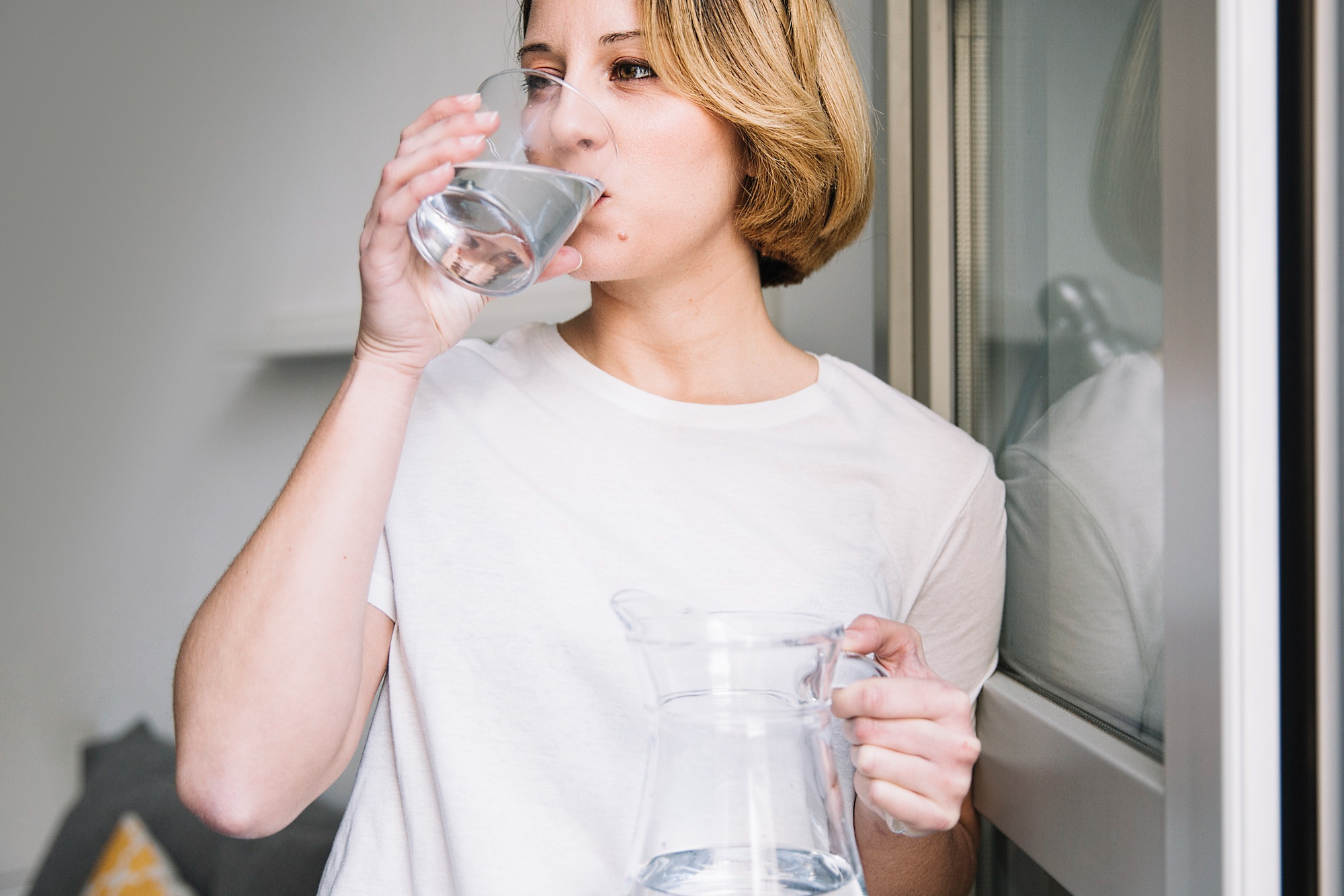How much water should you drink a day? Stay hydrated
Water is essential for life, playing a crucial role in maintaining our overall health and well-being. Understanding how much water you need to drink per day is vital to stay hydrated and support bodily functions. While the common advice is to drink eight glasses of water a day, the actual amount can vary based on several factors. It’s important to recognize that water intake isn’t just about drinking plain water; it also includes fluids from other beverages and foods. In this article, we will explore the factors influencing hydration and provide recommendations for daily fluid intake.
Understanding Daily Fluid Intake
Daily fluid intake is a key element in maintaining hydration and ensuring the body functions optimally. The fluid you drink in a day, whether it’s from a glass of water, other beverages, or foods that contain water, contributes to your overall hydration. Your body loses water through various processes such as sweating, breathing, and digestion, making it essential to replenish these losses. Understanding your body’s need for water and adjusting your intake accordingly can help you stay healthy and hydrated. Let’s delve deeper into how much water you need and the factors that influence your hydration levels.
How much water do you need?
The amount of water you need to drink every day varies depending on individual circumstances. Factors such as body weight, activity level, and climate can influence how much fluid a day you should consume. While some people may need to drink more water due to high physical activity or hot weather, others might require less. The key is to listen to your body and ensure you’re drinking enough to meet your needs. Remember, the aim to drink should be based on your personal requirements rather than a one-size-fits-all approach.
Factors influencing hydration
Several factors can influence your hydration status, including body weight, activity level, and environmental conditions. Understanding these factors can help you make informed decisions about your daily fluid intake to stay hydrated effectively.
- Individuals who engage in vigorous exercise or live in hot climates may experience more fluid loss and need to drink more water to compensate.
- Dietary choices such as consuming caffeine or sugary drinks can impact fluid balance.
- Foods like fruit and vegetables, with high water content, can also contribute to your overall water intake.
Daily fluid intake recommendations
Daily fluid intake recommendations can provide a helpful guideline for maintaining hydration. The NHS suggests aiming for around six to eight glasses of fluid a day, including water and other beverages. It’s important to note that while drinking enough water is crucial, consuming excess water can also be harmful. Balancing your water intake with other fluids and foods that contain water is essential. By paying attention to your body’s signals and adjusting your fluid intake accordingly, you can ensure you drink enough water to support your health and well-being every day.
The Benefits of Drinking Water
Staying hydrated offers a plethora of health benefits that extend beyond quenching thirst. Adequate fluid intake is essential for maintaining optimal body functions, ensuring that your organs operate efficiently. Drinking enough water aids in several ways, including:
- Regulating body temperature and lubricating joints
- Facilitating digestion and flushing out toxins and waste products
These benefits help reduce the risk of kidney stones and urinary tract infections. By incorporating enough fluids into your daily routine, including water from fruits and vegetables, you can support your circulatory system and enhance your immune function, ultimately helping you to stay healthy and vibrant.
Impact on physical performance
The impact of hydration on physical performance is profound, particularly for those who engage in rigorous physical activities. When you lose water through sweat during exercise, your body’s performance can decline, leading to fatigue and decreased endurance. Drinking enough water replenishes the fluids lost, enabling muscles to function properly and reducing the risk of cramps and injuries. Adequate hydration also helps in maintaining electrolyte balance, which is crucial for athletes and individuals who exercise regularly. By ensuring you drink enough water throughout the day, especially before, during, and after workouts, you can sustain energy levels and optimize your physical capabilities, enhancing overall performance.
Mental clarity and hydration
Hydration plays a critical role in maintaining mental clarity and cognitive function. Dehydration, even at mild levels, can impair concentration, alertness, and short-term memory. Drinking enough water throughout the day ensures that your brain receives the necessary hydration to function optimally. This is particularly important in environments where cognitive demands are high or when engaging in tasks that require sustained attention. By drinking a sufficient amount of water daily, you can improve your mental acuity, enhance mood, and reduce feelings of fatigue. Ensuring that you have a glass of water within reach can be a simple yet effective strategy to boost your mental performance and stay focused.
How to Ensure You Drink Enough Water
To drink more water daily, there are several strategies you can implement:
- Set a specific goal for how much water you need to drink.
- Use a reusable water bottle with marked measurements to track your progress.
Incorporating a glass of water into your routine before meals can also make a significant difference. If plain water doesn’t appeal to you, infuse it with fruit and vegetables like lemon or cucumber for added flavor. Be mindful of the beverages you choose; limit caffeine and sugary drinks as they may contribute to dehydration. Aim to drink enough to stay hydrated by listening to your body’s thirst signals.
Ways to track your water intake
Tracking your water intake can help ensure you meet your daily hydration goals. Utilize mobile apps designed for monitoring fluid intake, providing reminders to drink a glass of water at regular intervals. Alternatively, keep a log of the number of glasses of fluid a day you consume. If you enjoy technology, consider a smart water bottle that syncs with your phone to track your hydration automatically. Remember, the key is not to drink too much water but to maintain a balance that suits your body’s needs. Monitoring your intake can prevent both dehydration and the risk of consuming excess water.
Signs you need to drink more
Recognizing signs that you need to drink more water can prevent dehydration and maintain your overall health. Common indicators include feeling thirsty, having a dry mouth, and experiencing fatigue. If your urine is dark yellow, it’s a signal to increase your fluid intake. Other symptoms like dizziness, headaches, or dry skin can also indicate the need for extra water. Pay attention to how your body responds after exercise or in hot climates, as you may lose water more rapidly. Ensuring you drink enough water throughout the day can help you stay hydrated and support your bodily functions effectively.
Risks of Over-Hydration
While ensuring adequate hydration is crucial for health, it’s equally important to be aware of the risks associated with drinking too much water. Over-hydration, or water intoxication, occurs when you consume more water than your body can process, leading to an imbalance of electrolytes, particularly sodium. This condition, known as hyponatremia, can result in symptoms ranging from mild to severe, including nausea, headaches, and confusion. Understanding that drinking too much water can be detrimental is essential in finding a balance. While the aim to drink is to stay hydrated, it’s vital to recognize your body’s limits and avoid excess water intake.
Symptoms of over-hydration
Recognizing the symptoms of over-hydration is crucial for maintaining balance in your daily fluid intake. When you drink too much water, your body’s sodium levels can drop, leading to symptoms such as nausea, headache, and muscle weakness. More severe cases can cause confusion, seizures, or even coma. These symptoms occur because excess water dilutes the sodium in your blood, disrupting normal cellular functions. Monitoring your fluid intake and being mindful of the symptoms of over-hydration are essential to ensure that you drink enough water without exceeding the amount your body can handle.
Finding the balance: drink a lot vs. drink too much
Finding the balance between drinking enough water and avoiding over-hydration is key to maintaining health. While it’s essential to drink a lot to stay hydrated, especially if you lose water through exercise or hot climates, it’s equally important not to drink too much. Listen to your body’s signals and adjust your water intake based on your activity level, body weight, and environmental conditions. Aim to drink enough fluids, including those from fruit and vegetables, to meet your daily needs without exceeding them. This balanced approach will help you stay healthy and avoid the risks associated with both dehydration and over-hydration.

